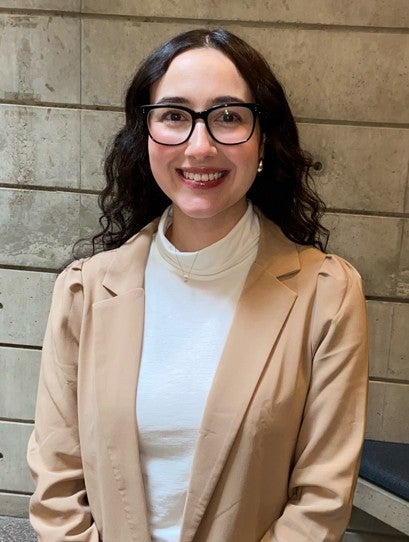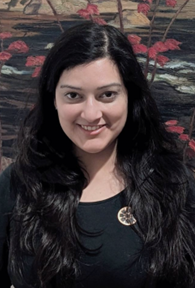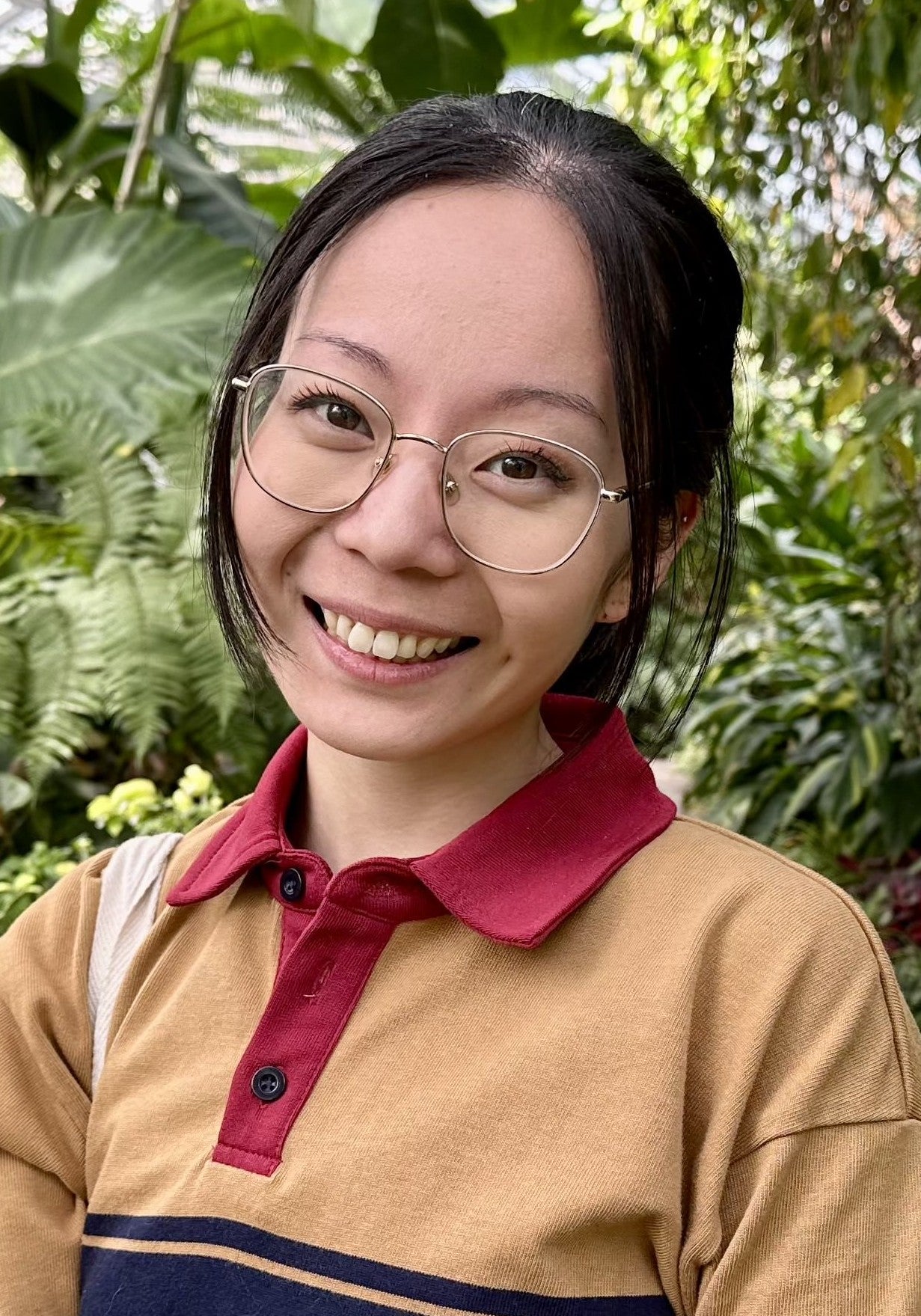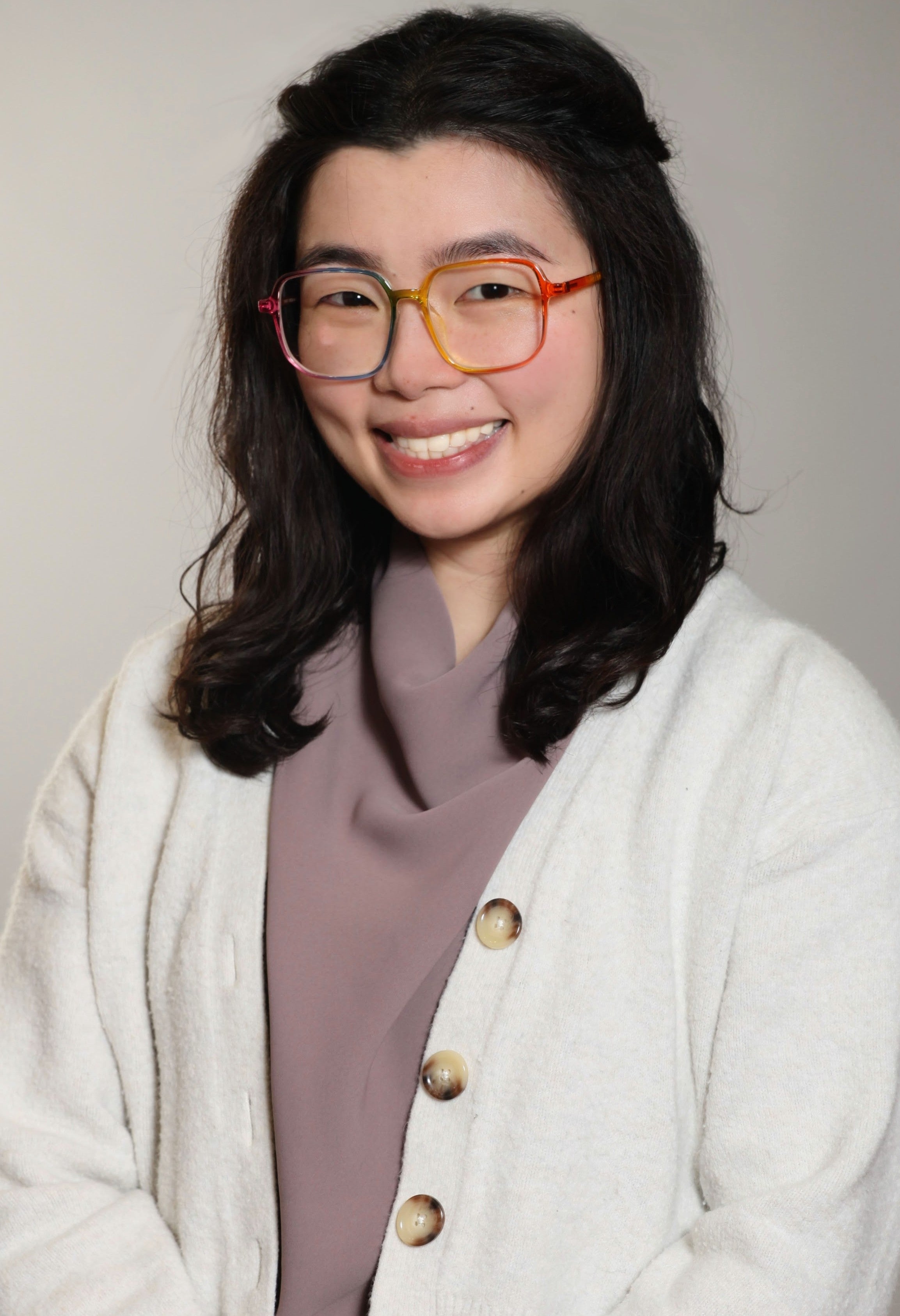Taylor Carroll
Published January 2026

Taylor is a fourth-year PhD student in the Industrial-Organizational Psychology program, working under Dr. Ramona Bobocel. Taylor’s dissertation research focuses on fair leadership in organizations. Specifically, she is (1) developing a scale to measure employees’ perceptions of their supervisor’s inconsistent fairness and (2) studying how informational justice affects employee reactions in bad news conversations. Taylor is funded by the SSHRC Canadian Doctoral Scholarship and received the Pat Rowe I/O Psychology Graduate Scholarship for her academic achievements. She has presented her research at several academic conferences, including the Canadian Psychological Association (CPA) and the Society for Industrial and Organizational Psychology (SIOP). In 2025, Taylor won the 1st place poster award for EDI research from the Canadian Society for Industrial and Organizational Psychology (CSIOP).
Taylor has co-instructed Psychological Measurement (PSYCH 492), a fourth-year undergraduate course focused on the development and assessment of psychological tests, for four academic terms. She is currently co-supervising an honours thesis project examining whether managers apologize for justice violations and the effects of such apologies on employees’ affective reactions.
Connect with Taylor on LinkedIn
Sarena Daljeet
Published January 2026

Sarena is a 5th-year Clinical Psychology Ph.D. Candidate in the Psychological Intervention Research Team, working under the supervision of Dr. Jonathan Oakman. She leads a research program on psychotherapy processes using a large therapy video archive from the Centre for Mental Health Research and Treatment. Her research addresses the question of how therapy works by1) linking processes that lead to change with therapy outcomes over time and 2) addressing methodological and statistical issues relating to measuring these processes. In addition, as a collaborator with the Emotion Transformation Institute, Sarena leads a multiprovincial research program assessing the outcomes of emotion-focused therapy for youth and caregivers. She has presented at local and international conferences, receiving the Sol Garfield Memorial Trainee Award from the Society for Psychotherapy Research for her work. Her research has also been supported by the Canada Graduate Scholarship (Master’s) and the Ontario Graduate Scholarship (Doctoral). As well, she was a recipient of the Innovation in Psychology Graduate Scholarship in 2025, and a Psychology Memorial Award in 2023.
In her clinical work, Sarena provides assessment and therapy services to children, adolescents, and young adults, with an emphasis on supporting caregivers. She has gained experience in community, private practice, hospital, and forensic settings.
Sarena is actively involved in her broader academic community. She runs scientific writing workshops for undergraduate classes and is a frequent guest lecturer on the topic of psychotherapy research. She has also held mentorship roles for undergraduate and graduate psychology students through initiatives led by the University of Waterloo as well as the Society for Psychotherapy Research. Outside of school, she enjoys reading, writing, and weightlifting.
Connect with Sarena on LinkedIn
View Sarena’s 3-Minute Thesis Talk
Kaitlin Bain
Published January 2026
Jasmine Zhang
Published January 2026

Jasmine is a 4th-year Clinical Psychology Ph.D. Candidate in the FamilyPsycle Lab, working under the supervision of Dr. Dillon Browne. Her primary research interests focus on how digital media activities relate to the well-being of children and caregivers through a family-wide lens. This includes applying advanced statistical modelling to 1) capture the links between media use and child and adolescent mental health, 2) understand outcomes associated with parental media use, and 3) explore how media use relates to family functioning. She has presented her work at various local and international conferences, and one of her publications was previously featured in BBC Newsday. Jasmine is also actively engaged in efforts to promote safe online spaces for children and youth, including previously working as an Impact Fellow with the Children and Screens Institute for Digital Media and Child Development. Additionally, she is involved in various community-based research initiatives with the Children and Youth Planning Table of Waterloo Region. Jasmine’s work has been supported by the Canada Graduate Research Scholarship (Master’s and Doctoral) and the Ontario Graduate Scholarship. She was also a recipient of the IODE War Memorial Scholarship in 2025.
In clinical work, Jasmine has completed advanced training in providing psychoeducational assessment and therapy services for children, adolescents, and adults. She has gained experience in community, private practice, school, and hospital settings, and received training in family-based assessment and intervention.
Jasmine is an active member of the Waterloo community. She previously served on the University of Waterloo Graduate Association of Students in Psychology and is currently a member of the Arts Faculty Council. Outside of school, she enjoys volunteering with National Service Dogs and participating in Run Waterloo events.
Visit Jasmine on Google Scholar
Connect with Jasmine on LinkedIn
Seth Winward
Published January 2026

Seth is currently a 4th-year PhD student working in the Social Cognition and Face Processing Lab with Dr. Roxane Itier. His current research focuses on the neuroscience of empathy, specifically whether the different empathy constructs developed in trait-level research using questionnaires are reflected by state-level behaviour and neural activity. He combines event-related potential (ERP) methods with rigorous mass univariate statistical techniques to better investigate the neural timing of empathy, along with behavioural and trait-based methods. His broader research interests span a wide range of topics in social and affective neuroscience, including face perception, emotion processing, theory of mind, and prejudice. Seth has experience with ERP, psychophysiological, eye tracking, and behavioural methodologies and is committed to using multiple levels of analysis to better understand how we think, feel, and reason about others.
Seth has been fortunate to receive external funding from SSHRC, NSERC, and OGS throughout my time in graduate school; He has also received a Memorial Award and Research Dissemination Award from the Psychology Department. Seth has a strong interest in teaching that he has pursued through the Fundamentals of University Teaching and Certificate in University Teaching programs offered by the Centre for Teaching Excellence. He also serves the community at UW as a mentor to junior grad students through the department’s Big Sib program and as a union organizer for CUPE 5524. Outside of academia, Seth enjoys hiking, canoeing, and other activities that put him in touch with nature.
Publications:
- Winward, S. B. & Itier, R. J. (submitted). Is state empathy a multidimensional construct? Support from a novel within-subjects experimental design. Social Cognition.
- Winward, S. B. & Itier, R. J. (accepted). Assessment of trait empathy scales: Comparing the IRI and the TEQ on convergent validity with sexual prejudice, gender effects, and temporal stability. Journal of Personality Assessment.
- Winward, S.B. & Itier, R.J. (2025). The influence of sexual prejudice and gender on trait and state-level empathy. Frontiers in Psychology, 16.
- Winward, S. B., Siklos-Whillans, J., & Itier, R.J. (2022). Impact of face outline, parafoveal feature number and feature type on early face perception in a gaze-contingent paradigm: A mass-univariate re-analysis of ERP data. Neuroimage: Reports, 2(4), 100148.
Fatima Wasif
Published September 2025

Fatima is a 4th year Ph.D. Candidate in the Clinical Psychology program, working under the supervision of Dr. Tara McAuley at the Child and Adolescent Neuropsychology Lab. Her research focuses on understanding how social (perceived quality and quantity of social support) and cognitive (executive functions) factors independently and jointly predict well-being among young people across educational transitions. In her M.A she investigated this phenomenon in adolescents entering high school, while her Ph.D. dissertation focuses on young adults entering first year university. Building on this work, Fatima is developing valid and reliable survey tools to measure how individuals strategically use their environment—including physical implements, digital technologies and social networks—to offload cognitive demands in daily life. Her overarching goal is to inform prevention and intervention efforts to enhance student health and success post-academic transitions. Her work has been supported by SSHRC and OGS grants at both the Master’s and Doctoral levels.
Alongside her primary research focus, Fatima has also actively engaged in research-based collaborations with the Children and Youth Planning Table of Waterloo Region, with Dr. Dillon Browne. In this domain, her work examines risk and promotive factors for youth belonging and well-being across ecological systems.
Clinically, Fatima has developed a strong background in neuropsychological assessment, completing practica at renowned academic medical centers like The Hospital for Sick Children and McMaster Children’s Hospital. She is excited to continue to contribute to furthering wellness in young people through her research and clinical work.
- Visit Fatima on Google Scholar
Publications:
- Wasif, F., & McAuley, T. (2024). Exploring close relationships and executive functions as unique and joint predictors of adolescent subjective well-being across the transition to high school. Journal of Happiness Studies, 25(6), 64.
- Wasif, F., Smith, J. A., & Browne, D. T. (2025). Youth's sense of belonging and associated risk and promotive factors: An ecological systems network analysis. Clinical child psychology and psychiatry, 13591045251380305. Advance online publication.
Pearlyn Ng
Published September 2025

Pearlyn is a 4th-year PhD Candidate in the Industrial-Organizational Psychology program, working under the supervision of Dr. Douglas J. Brown. She completed her Masters of Science in Management at Toronto Metropolitan University in 2022 under the supervision of Dr. Kristyn A. Scott (who is a U Waterloo I-O alumni!). Pearlyn’s research focuses on (1) dynamic perspectives of leadership, specifically how leader-follower exchanges and implicit theories shape leadership emergence and impact, and (2) the role of gender in advancing more inclusive conceptions of leadership. Her research is supported by the SSHRC Canadian Doctoral Scholarship, and she has presented her work at several national and international conferences, including the Academy of Management and the Society for Industrial and Organizational Psychology. In 2024, her research received the first-place award for EDI Research Poster from the Canadian Society for Industrial Organizational Psychology.
Alongside her research, Pearlyn is actively involved in the academic and local community. She is a student mentor in the LIFT program and Big/Little Sib program at U Waterloo. This year, she served as a measurement mentor in the Measurement 4 Change program in Waterloo Region and provided measurement and analysis support to the Woolwich Counseling Centre. She is also a volunteer with the Canadian Association for Girls in Science, supporting programs and activities that inspire girls and gender-diverse youth to pursue STEM fields.
